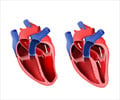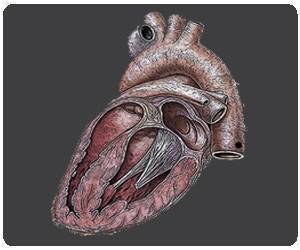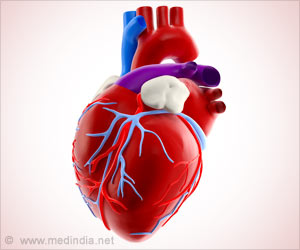Early screening for a genetic variant that predisposes people to hypertrophic cardiomyopathy could help reduce the incidence of sudden cardiac death.

‘Early screening for a genetic variant that predisposes people of South Asian descent to hypertrophic cardiomyopathy could help reduce the incidence of sudden cardiac death in this population.’





"The South Asian population, encompassing about 1.8 billion people
globally and 1% of the U.S. population or four million people, is
more likely to carry a genetic variant of myosin binding protein C,
cardiac (MYBPC3), which organizes heart muscle structure and plays a
role in hypertrophic cardiomyopathy," says Sakthivel Sadayappan,
professor in the Division of Cardiovascular Health and Disease.That variant was discovered by Sadayappan and a team of researchers, at Max-Planck-Institute in Germany, in 2001.
"If you have Type 2 diabetes, or if you have hypertension and if you also have this genetic variant you have greater chances of having severe heart disease," says Sadayappan, director of the Heart Branch of the UC Heart, Lung and Vascular Institute.
In the United States, Sadayappan and his research team have screened 1,928 individuals and found that 118 people carry the genetic variant (MYBPC3). He says 4 to 5% of South Asians (individuals with Indian, Pakistani, Nepali, Bangladeshi, Afghan and Sri Lankan descent) carry the generic variant of MYBPC3. "The normal protein, MYBPC3, regulates how much force the heart muscle can generate; it controls the speed of heart and we call it a heart break protein," he explains.
Sadayappan will present the research poster titled, "A Polymorphic MYBPC3 Variant as a Major Risk Factor of Cardiomyopathy in South Asian Descendants," at the American Heart Association Scientific Sessions.
Advertisement
Sadayappan says a thickened and stiff ventricle can reduce the compliance of heart muscle, decrease preload (the heart's preparation to squeeze blood through the ventricle) and lead to diastolic heart failure. Hypertrophic cardiomyopathy affects individuals from various ethnic backgrounds, though rates are higher among South Asians, and has garnered attention notably because several young athletes with the condition have died following rigorous physical performance, says Sadayappan.
Advertisement
Sadayappan says identifying individuals with the hypertrophic cardiomyopathy is crucial and that his work targeting South Asians has spanned his 23-year career which began as a postdoc studying in Germany, continued as a faculty member at Loyola University in Chicago and is ongoing at the UC Heart, Lung and Vascular Institute.
Sadayappan says he and his team of researchers have collected genetic samples from South Asians in cities across the United States. When MYBPC3 has been discovered in individuals they are brought in for electrocardiograms and other cardiac tests and connected with physicians for medical care.
Richard Becker, director of the UC Heart, Lung and Vascular Institute, says that once a diagnosis for hypertrophic cardiomyopathy is made, physicians can utilize medicines to help the heart relax and be a more efficient pump. In specialized cases, individuals at high risk may require an implantable cardioverter defibrillator as a means to prevent sudden cardiac death.
"It's really important to make a diagnosis," says Becker. "If there is a family history of heart disease or sudden cardiac death, that might be a red flag, but there can be spontaneous gene mutations where a person without a family history will develop hypertrophic cardiomyopathy. They may have symptoms of fatigue, shortness of breath, light-headedness and loss of consciousness. Clinicians evaluating even young people must be aware of this possibility.
"What we are learning in the past year and Dr. Sadayappan is a part of this is there are different manifestations according to race and ethnicity and the genes responsible for this syndrome of hypertrophic cardiomyopathy which can differ in African-Americans, South Asians and other populations. The gene mutation is unique, the clinical presentation is unique and the natural history of the disease is unique. There are lots of variations of a theme."
Becker says Sadayappan's work advances the Precision Medicine Initiative announced by President Barack Obama in 2015. Precision medicine is an emerging approach for disease treatment and prevention that takes into account individual variability in environment, lifestyle and genes for each person, according to the National Institutes of Health website.
Source-Eurekalert














